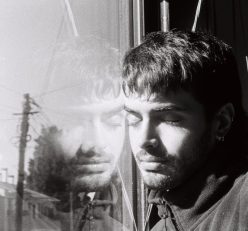I want to proceed with my extensive investigation of Giacometti’s work for this unit. I am neither a musician nor understand music theory, and I feel like Michel, as he would have to recur to Lopes-Graça, a musicologist, to justify his ideas. Still, I can be more critical of his work and practices under new perspectives and broaden it to new horizons. Still, I don’t want music to be the centre of my focus in my case. I see traditional music as a consequence or a response to what happened in Portugal during the Estado Novo era. I want to explore something I didn’t have time to do in the audio paper – the politics of voice documentation, the politics of the voice, the methodologies of an ethnomusicologist.
There are many ways of analysing Giacometti’s work, which brings us back to the first audiovisual documentation of humanity. The first documentary film, Nanook of the North, directed by Robert Flaherty in 1922, was later criticised for his biased perspective on the indigenous Inuit people. Flaherty is a white, westernised man depicting his view on these people – do the Inuit feel represented there? The same can be applied to Giacometti. Yee Thong Chai (Toby), my secondary lecturer in this module, recommended me a chapter from the book Decolonising Methodologies by Linda Tuhiwai Smith, who goes through this topic.
On the other hand, I am more inclined on researching different areas of analysis, such as the politics of the voice. “The act of lifting a microphone towards the individual to empower his voice” is the argument that I raised on my previous audio paper but couldn’t reply to due to insufficient information. However, I knew where I could get that information. I had on my hands. The ethnographic researcher Salwa Castelo-Branco, an Egyptian Portuguese woman, currently working in the Ethnography department in Universidade Nova de Lisboa, talks about it in two books, Music in Conflict and Vozes do Povo, which talks about the methodologies on registering voice and traditional music. Also, other writers recommended by my lecturer Dr Annie Goh, such as Adriana Cavarero, will do further research and consider whether it suits my fundaments.

